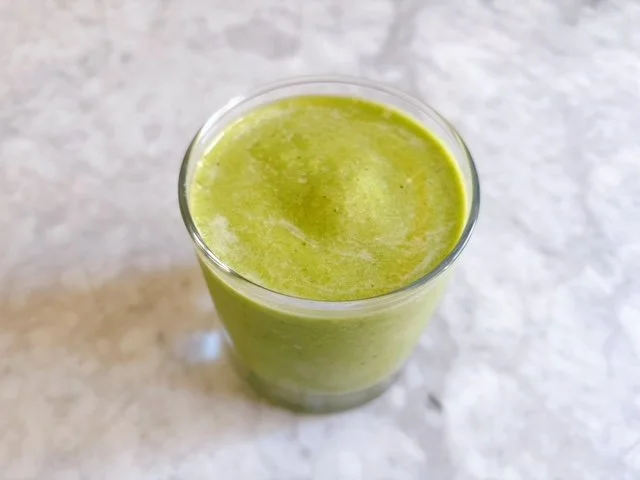Smoothies vs Juices: Exploring the Differences and Their Health Benefits
In today's health-conscious world, smoothies and juices have become popular choices for individuals seeking to incorporate more fruits and vegetables into their diets. Both options offer a convenient and tasty way to obtain essential nutrients and improve your health. However, it is important to understand the differences between smoothies and juices, as well as the unique benefits each provides. In this article, we’ll delve into the distinctions and explore the health advantages of smoothies and juices, helping you make an informed decision about which option suits your needs best.
Smoothies: Blending the Goodness:
Smoothies are a blended beverage made by combining whole fruits, vegetables, liquids (such as water, juice, milk, or plant-based alternatives), and additional ingredients like yogurt, nut butter, or protein powders. One of the key characteristic of a smoothies is that they are often made with whole produce. That means they retain the fiber present in the ingredients.
Benefits of Smoothies:
Fiber-Rich Nutrition: Smoothies offer the advantage of retaining the natural fiber content of fruits and vegetables. Fiber aids in digestion, promotes satiety, and helps regulate blood sugar levels. It also supports a healthy gut microbiome and can contribute to weight management.
Sustained Energy Release: The fiber in smoothies slows down the absorption of sugars, leading to a gradual and sustained release of energy. This prevents sudden blood sugar spikes and crashes, promoting stable energy levels throughout the day.
Complete Nutrition: With the ability to blend various fruits, vegetables, and additional ingredients, smoothies can provide a well-rounded mix of essential vitamins, minerals, antioxidants, and phytochemicals. They offer a convenient way to consume a diverse range of nutrients in a single serving.
Meal Replacements: Smoothies can serve as a convenient and nutritious meal replacement option, providing a balanced combination of macronutrients (carbohydrates, proteins, and fats) and micronutrients (vitamins and minerals). Smoothies are thicker, and more filling than juices, making them serve as a superior meal replacement option. They can also be higher in calories with more protein and healthy fats.
Post Workout Nutrition: After a strenuous workout, the body requires replenishment of nutrients to support recovery and muscle repair. Smoothies can be an excellent choice for post-workout nutrition compared to juices due to the versatility of ingredients and potential for higher calories and higher protein content.
Take a look at our article on Post Workout Smoothies for more information.
Customization: Smoothies can be easily customized to suit individual preferences and dietary needs. Whether you're looking to boost protein intake, add healthy fats, or incorporate superfoods, smoothies can be tailored to meet specific nutritional goals.
For more on smoothies, check out Why Smoothies, or some of our other great smoothie focused resources.
Juices: Extracting Liquid Goodness:
Juices, on the other hand, are obtained by extracting the liquid content from fruits and vegetables, leaving behind the fibrous pulp. This process is typically done using a juicer, which separates the juice from the solid components.
Benefits of Juices:
Increased Nutrient Concentration: Juicing allows for a higher concentration of vitamins, minerals, and phytonutrients in a smaller volume of liquid. This is because the fiber is removed, allowing for easier and quicker absorption of nutrients by the body.
Quick Nutrient Delivery: Since juices are free from fiber, the nutrients are readily available for absorption. This can be beneficial for individuals with digestive issues or those who require rapid nutrient replenishment, such as athletes or individuals recovering from illnesses. It can allows for quicker delivery of nutrients to the cells and organs, supporting detoxification and cleansing.
Variety of Flavor Combinations: Juices offer an opportunity to experiment with flavor combinations that may not be as easily achieved in smoothies. The absence of fiber allows for a smoother and more concentrated taste profile, making it an enjoyable way to consume a variety of fruits and vegetables.
Hydration: Juices contribute to overall hydration, as they provide a liquid source of essential nutrients. They can be particularly refreshing during hot weather or after intense physical activity. They also have a higher water content compared to smoothies.
Main Factors to Consider:
When deciding between smoothies and juices, it is essential to consider individual preferences, dietary needs, and health goals. Here are some main factors to keep in mind:
Fiber Intake: If you are looking to increase your fiber intake or support digestive health, smoothies are the better choice. The presence of fiber in smoothies aids in digestion, promotes bowel regularity, and helps you feel fuller for longer.
Nutrient Absorption: Juices allow for quicker nutrient absorption due to the absence of fiber.
More Filling: Smoothies tend to be more filling due to the higher calories, higher protien and higher fiber content.
Health Goals: If your primary goal building muscle, replacing a healthy meal, or adding superfoods to your diet - drink more smoothies. If your primary goal is hydration, detoxing, or cleansing - drink more juices.





